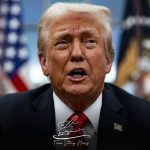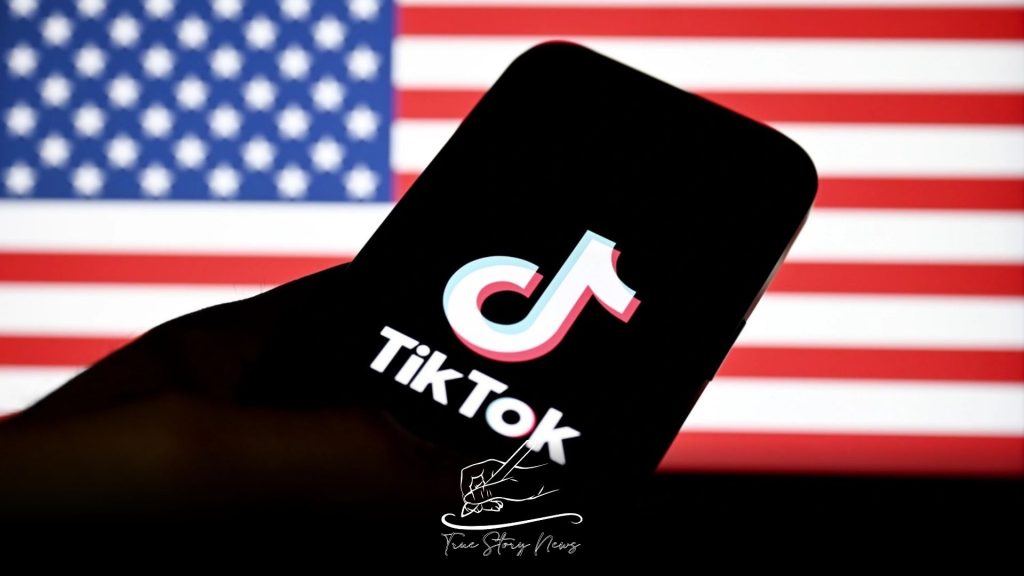TikTok is set to resume services for its 170 million users in the United States following President-elect Donald Trump‘s announcement of an impending executive order that will provide the app with a reprieve upon his inauguration on Monday.
On Saturday evening, American users experienced a disruption as the Chinese-owned app ceased functioning following the implementation of a law that prohibits its use on national security grounds.
Former President Trump, who had earlier supported a ban on the platform, announced on Sunday his intention to postpone the enforcement of the law, providing additional time for negotiations. TikTok announced that it was actively working on “restoring service.”
Shortly thereafter, the application resumed functionality, displaying a popup message thanking Trump by name to its vast user base. The company expressed gratitude to the incoming president for offering “the necessary clarity and assurance,” stating its intention to collaborate with Trump “on a long-term solution that keeps TikTok in the United States.”
TikTok CEO Shou Chew is anticipated at Trump’s inauguration on Monday.
In a recent post on Truth Social, his social media platform, Trump urged companies to take action regarding TikTok on Sunday, stating, “I’m asking companies not to let TikTok stay dark!” On Monday, an executive order will be issued to prolong the timeline before the law’s prohibitions come into force, allowing for negotiations aimed at safeguarding national security.
Bytedance, TikTok’s parent company, has previously disregarded a legal mandate that necessitated the sale of its US operations to prevent a potential ban. The Supreme Court upheld the law on Friday, which subsequently went into effect on Sunday.
The legal authority that Trump may possess to postpone the enforcement of a law currently in effect remains uncertain. However, it is anticipated that his administration will refrain from enforcing the ban should he choose to issue an executive order.
It marks a significant reversal from his earlier stance. Former President Trump, who previously supported a ban on TikTok, has recently expressed a newfound appreciation for the app. He highlighted the significant number of views his videos garnered on the platform during the previous presidential campaign, referring to it as a “warm spot” in his social media strategy.
President Joe Biden‘s administration previously announced that it would refrain from enforcing the law during its final hours in office, opting instead to let the process unfold under the incoming Trump administration.
On Saturday evening, TikTok suspended its services to restore access swiftly by Sunday.
The short-form video platform has gained immense popularity among its millions of users in the United States. The platform has emerged as an essential resource for American political campaigns aiming to engage younger voters.
According to legislation enacted last April, the US version of the app faced removal from app stores and web-hosting services unless its Chinese parent company, ByteDance, divested its US operations.
TikTok presented its case to the Supreme Court, contending that the law infringed upon the free speech rights of its users within the nation.
The legislation received bipartisan support in Congress, with both Republicans and Democrats backing it, and was unanimously upheld by the Supreme Court justices earlier this week.
The situation highlights a significant divide on a crucial national security matter between the president-elect and certain factions within his party. Marco Rubio’s selection for the position of Secretary of State comes with a notable endorsement, as he has been an outspoken advocate for the ban.
“TikTok has expanded the reach of the Chinese Communist Party into our country, operating right beneath our awareness,” he stated last April. However, he appeared to yield to the president-elect when a reporter enquired about his stance on Trump’s initiatives to reinstate the ban.
“If I am confirmed as secretary of State, I will work for the president,” he stated in an interview with Punchbowl Media last week.
In a notable departure from President Trump’s stance, Senate Intelligence Committee Chair Tom Cotton, a Republican senator from Arkansas, asserted on Sunday morning that any company aiding TikTok in remaining operational would be violating the law.
“He stated on social media that any company involved in hosting, distributing, servicing, or facilitating TikTok, which is under communist control, could be subject to liabilities amounting to hundreds of billions of dollars. This potential legal exposure could arise from the Department of Justice and securities law, shareholder lawsuits, and actions from state attorneys general.”
A legal challenge could arise against an executive order that contradicts existing laws.
Multiple states have initiated legal action against the platform, raising the prospect of TikTok facing bans at the local level despite its continued availability on a national scale.
While the platform resumed operations for existing users on Sunday, uncertainty lingers regarding the potential support from third-party entities, such as hosting platforms or app stores like Google and Apple, for TikTok in the United States, according to Carl Tobias, a law professor at the University of Richmond. The app was removed from the stores before the impending ban in a preemptive move.
“The situation is unclear,” he stated in an interview with the BBC.
In a recent statement on Truth Media, Trump pledged to protect companies from legal liability, potentially paving the way for TikTok’s return to both Apple and Google platforms.
The president-elect stated on Truth Social Sunday that the order would affirm that no company involved in preventing TikTok from shutting down before his directive would face any liability.
During the Supreme Court hearings, Solicitor General Elizabeth Prelogar firmly asserted that an executive order is incapable of retroactively altering the law.
“Regardless of the actions taken by the new president, the fundamental situation for these companies remains unchanged,” stated Justice Sonia Sotomayor during the hearings.
“That’s correct,” Prelogar stated.
Professor Tobias stated that the law contains a provision permitting the president to delay the ban for a maximum of 90 days, provided he can demonstrate that the company is making significant strides in addressing national security concerns. However, he stated that whether those conditions have been fulfilled remains uncertain.
“The most effective course of action for Trump would be to collaborate with Congress, avoiding any potential legal violations or unresolved issues,” he stated.
“It remains uncertain whether additional information will emerge before the executive order’s release.”












